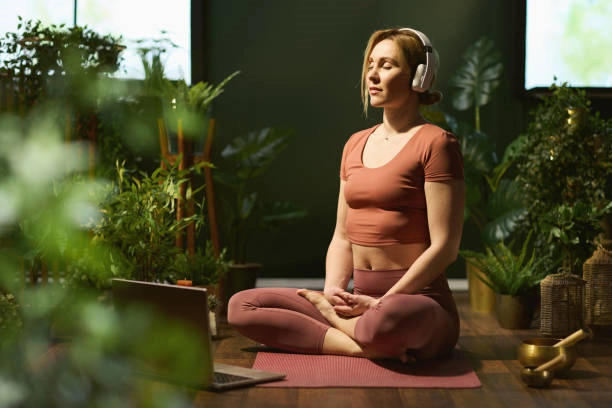Meditation: Boosting Self-Control and Helping You Sleep Well
Many people find meditation mysterious, especially when terms like “enlightenment” and “liberation” are often used in yoga books and encyclopedias, which can be intimidating for beginners. People tend to picture a monk in a meditative pose with hands together when they think of meditation. But meditation is actually a straightforward self-improvement tool that anyone can learn quickly, with practice helping to improve quality of life.
If you are interested in meditation or Zen and want to learn more, you can buy our e-book: The Essence of Zen Meditation, and Zen Meditation: Calm Your Mind, which contains many insights and experiences of masters on meditation. This may be of great help to you! !
What Meditation is Not
- Meditation ≠ Emptying Your Mind
Meditation doesn’t mean thinking about nothing. It’s natural for the mind to wander because thinking is one of the primary things that sets humans apart from other animals. Meditation focuses more on being present and aware of how you feel in the moment. Although meditation gradually improves focus on the present, it’s also normal to get distracted—just gently bring your attention back. - Meditation ≠ Yoga
Although yoga often incorporates breathing meditation to balance body and mind, meditation itself doesn’t require yoga poses or specific locations. Essentially, it’s a mental exercise you can do just by sitting down. - Meditation ≠ Taking a Nap
Meditation can provide restful moments that help the body recover quickly, but it’s not the same as sleep. During meditation, your awareness remains active—you’re aware of the environment and your current feelings. - Meditation ≠ Only Sitting
Meditation can take many forms, not just sitting: it includes standing, lying down, praying, walking, dancing… really, any method that helps calm the mind and brings focus to the present moment is a form of meditation.

What Can Meditation Bring?
- Increased Self-Control
Kelly McGonigal’s book The Willpower Instinct notes that neuroscientists have found regular meditation not only enhances meditation skills but also improves self-control, attention, stress management, impulse control, and self-awareness. - More Energy
Meditation helps relieve the brain from heavy thinking, providing it with rest and allowing it to recover quickly. - Better Sleep Quality
Studies show that meditation promotes calmness and contentment, making it easier to sleep undisturbed by random thoughts. With greater tolerance for stress, one’s sleep quality can significantly improve. - Enhanced Intelligence and Focus
When in a meditative state, brain activity shifts to more organized waves, which reduce the influence of the neocortex (responsible for rational and intellectual thought). This activates the autonomic nervous system and the brainstem, which governs instincts, willpower, and hormone regulation. - Greater Awareness of the Present and a Higher Consciousness
While reaching high levels of consciousness can be challenging and may require some natural inclination, regular meditation practice can improve present-moment awareness. This awareness helps us recognize unhelpful thoughts or mental traps we may unknowingly fall into.

How to Start Meditating
- Begin with Breathing
- Find a comfortable sitting posture, close your eyes, relax your body, spread your feet shoulder-width apart, and rest your hands on your thighs with your back straight.
- Scan your body, relaxing any tense areas. For instance, if your hands feel tense, clench your fists and release them slowly; if your shoulders are tight, shrug and then release; if your eyes are strained, close them tightly and then relax.
- Start breathing naturally, mentally noting “inhale” when you breathe in and “exhale” when you breathe out, or count each breath as it comes.
- Pay Attention to Physical Sensations While Breathing
When you’re comfortable with basic breathing, shift your focus to how your body feels with each breath. Gradually, you can slow your breathing rate, from 2-3 seconds per breath to 5-7 seconds, and eventually to 4-6 breaths per minute.During practice, if you find yourself distracted, don’t feel frustrated. This is entirely normal; gently bring your focus back to your breathing.
Meditation is about training yourself to become more aware of your thoughts and feelings. Over time, this practice helps you step back from your thoughts and gain greater control over them.








